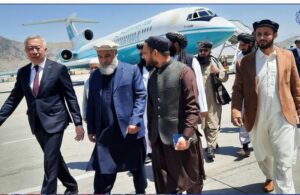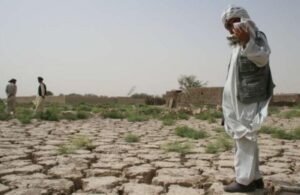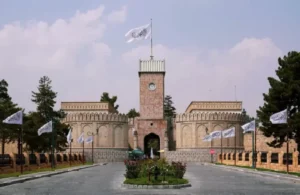MONITORING (SW) – The International Criminal Court on Friday said it cannot rule on a prosecutor’s request to resume a war crimes investigation of Afghanistan until it can decide who represents the country in international bodies.
The judges asked U.N. Secretary General Antonio Guterres and the ICC’s governing body for help identifying which group officially rules Afghanistan from an international law standpoint. It asked for a response by Nov. 8.
Prosecutor Karim Khan had asked the ICC to proceed and said there was no need to decide who runs Afghanistan, reported Reuters.
The Pre-Trial Chamber II of the International Criminal Court (the ‘Court’) has decided to request the Secretary-General of the United Nations and the Bureau of the Assembly of States Parties of the Court to submit information on the identification of the authorities currently representing the Islamic Republic of Afghanistan (the ‘Afghanistan’).
The Chamber was seized of a request submitted on 27 September 2021 by the Prosecutor, in which he sought the authorisation of the Chamber for the resumption of the investigation in the Situation in Afghanistan pursuant to article 18(2) of the Rome Statute (the ‘Statute’), notwithstanding the Government of Afghanistan’s request of 26 March 2020 seeking a deferral of the Prosecutor’s investigation, said an official statement.
Noting the need to promptly and urgently take all steps necessary and appropriate to preserve potential evidence of crimes within the jurisdiction of the Court, the Chamber finally reminded the Prosecutor of the provisions contained in article 18(6) of the Statute, according to which ‘the Prosecutor may, on an exceptional basis, seek authority from the Pre-Trial Chamber to pursue necessary investigative steps for the purpose of preserving evidence where there is a unique opportunity to obtain important evidence or there is a significant risk that such evidence may not be subsequently available’.
The Chamber noted that article 18 of the Statute is at the heart of the complementarity regime which underpins the Statute and encapsulates the idea of a process of dialogue of a legal nature, between the Court and the Prosecutor on the one hand, and the relevant State, on the other.
It stressed that statements or assumptions of political nature have no place in a Court of law and that it is not within the Chamber’s or any organ of the Court’s purview to determine issues relating to a State’s representation, or to the transition of power within a given State; accordingly, it considered that it needed to receive reliable and updated information as to the identification of the authorities currently representing Afghanistan. Because of their respective institutional mandates, the entities deemed suitable to provide this type of information at this stage were the Secretary-General of the United Nations and the Bureau of the Assembly of States Party.
ENDS






